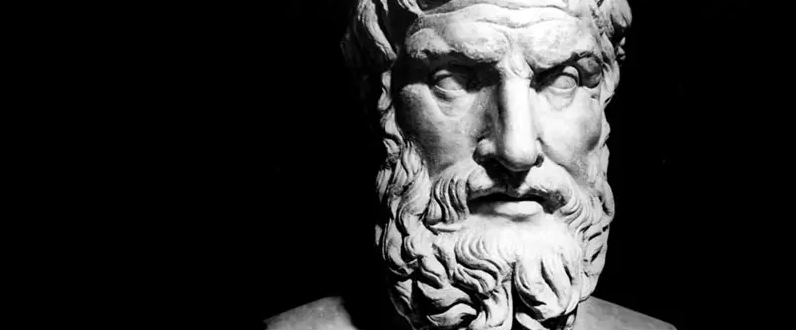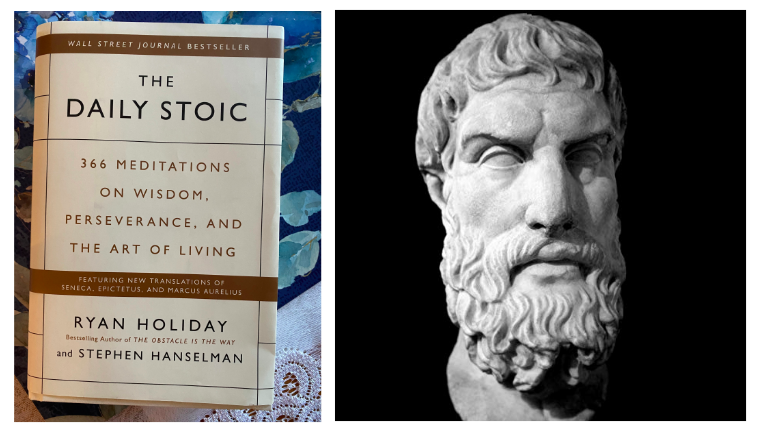“Remember that the divine order is intelligent and fundamentally good,” the great Stoic philosopher Epictetus (55-135 AD) once wrote. “Life is not a series of random, meaningless episodes, but an ordered, elegant whole that follows ultimately comprehensible laws.”
While easy for us to acknowledge God’s sovereignty when things go our way, this sentiment can be difficult to accept when our will and desires fail to manifest into reality. Yet, as many spiritual giants have suggested, this is where adopting the right perspective becomes increasingly important.
Indeed, consider Marcus Aurelius’ words from his book, Meditations:
“Just as you overhear people saying that ‘the doctor prescribed such-and-such for him’ (like riding, or cold baths, or walking barefoot…), say this: ‘Nature prescribed illness for him’ Or blindness. Or the loss of a limb. Or whatever. There ‘prescribed’ means something like ‘ordered, so as to further his recovery.’ And so too here. What happens to each of us is ordered. It furthers our destiny.”
Or the words of Archbishop Desmond Tutu, recorded in The Book of Joy:
“We are meant to live in joy. This does not mean that life will be easy or painless. It means that we can turn our faces to the wind and accept that this is the storm we must passthrough. We cannot succeed by denying what exists. The acceptance of reality is the only place from which change can begin.”
And those spoken by Martin Luther King, Jr. in his 1954 sermon on “Rediscovering Lost Values“:
“All I’m trying to say to you is that our world hinges on moral foundations. God has made it so. God has made the universe to be based on a moral law. So long as man disobeys it he is revolting against God.”
Or the plea from renowned novelist Flannery O’Connor, as recorded in her prayer journal:
“I want very much to succeed in the world with what I want to do. I have prayed to You about this with my mind and my nerves on it and strung my nerves into a tension over it and said, ‘oh God please,’ and ‘I must,’ and ‘please, please.’ I have not asked You, I feel, in the right way. Let me henceforth ask you with resignation – that not being or meant to be a slacking up in prayer but a less frenzied kind – realizing that the frenzy is caused by an eagerness for what I want and not a spiritual trust.”
We are again reminded of this — the importance of learning how to submit our will to God’s — in The Daily Stoic: 365 Meditations on Wisdom, Perseverance, and the Art of Living (2016), a collection of daily Stoic-inspired devotionals co-authored by Ryan Holiday and Stephen Hanselman.
The below entry, taken from the section on “the discipline of will” and beginning with a quote from Epictetus, speaks not only to recognizing the sovereignty of God, but to accepting it with humility and grace.
“Binding Our Wishes to What Will Be”
“But I haven’t at any time been hindered in my will, nor forced against it. And how is this possible? I have bound up my choice to act with the will of God. God wills that I be sick, such is my will. He wills that I should choose something, so do I. He wills that I reach for something, or something be given to me – I wish for the same. What God doesn’t will, I do not wish for.” – Epictetus, Discourses, 4.1.89
“When General Dwight D. Eisenhower wrote to his wife on the eve of the invasion of Normandy, he told her, ‘Everything we could think of has been done, the troops are fit, everybody is doing his best. The answer is in the lap of the gods.’ He’d done everything he could – and now, what would happen would happen and as Epictetus might say, he was ready to bear whatever that was. In fact, Eisenhower had written another letter that night and prepared it for release in case the invasion failed. If failure was what God – or fate or luck or whatever you want to call it – willed, he was ready.
There is a wonderful lesson there. The man in charge of perhaps the most powerful army the world had ever assembled, on the eve of the most expertly organized and planned invasion the world will hopefully ever know, was humble enough to know that the outcome ultimately belonged to someone or something bigger than him.
And so it goes with all our ventures. No matter how much preparation, no matter how skilled or smart we are, the ultimate outcome is in the lap of the gods. The sooner we know that, the better we will be.”
Referenced posts:
- Epictetus on How to Live a Good, Fulfilling Life
- Think Carefully: Marcus Aurelius on How to Control the Mind
- Martin Luther King, Jr.: Sometimes to Move Forward, We Have to Go Backward
- The Dalai Lama and Archbishop Desmond Tutu on the Four Qualities of the Mind that Lead to Joyful Living
- Flannery O’Connor: Wrestling with Ambition and Humility
Similar posts:
- Letting Go: The Bhagavad Gita on the Importance of Non-attachment
- Gisele Bündchen on Self-Awareness, Challenging Your Thoughts and Paying Attention to Your Inner Voice
- Yielding Control: Irenaeus of Lyon on What it Means to be a Created Being
- “I Love the Word Impossible”: Ann Kiemel on Our “Giant of a God”
- Worry, Not: Søren Kierkegaard on What We Can Learn from the Birds of the Air and Lilies of the Field
- Saint Augustine on the Happy Life and Finding Joy


